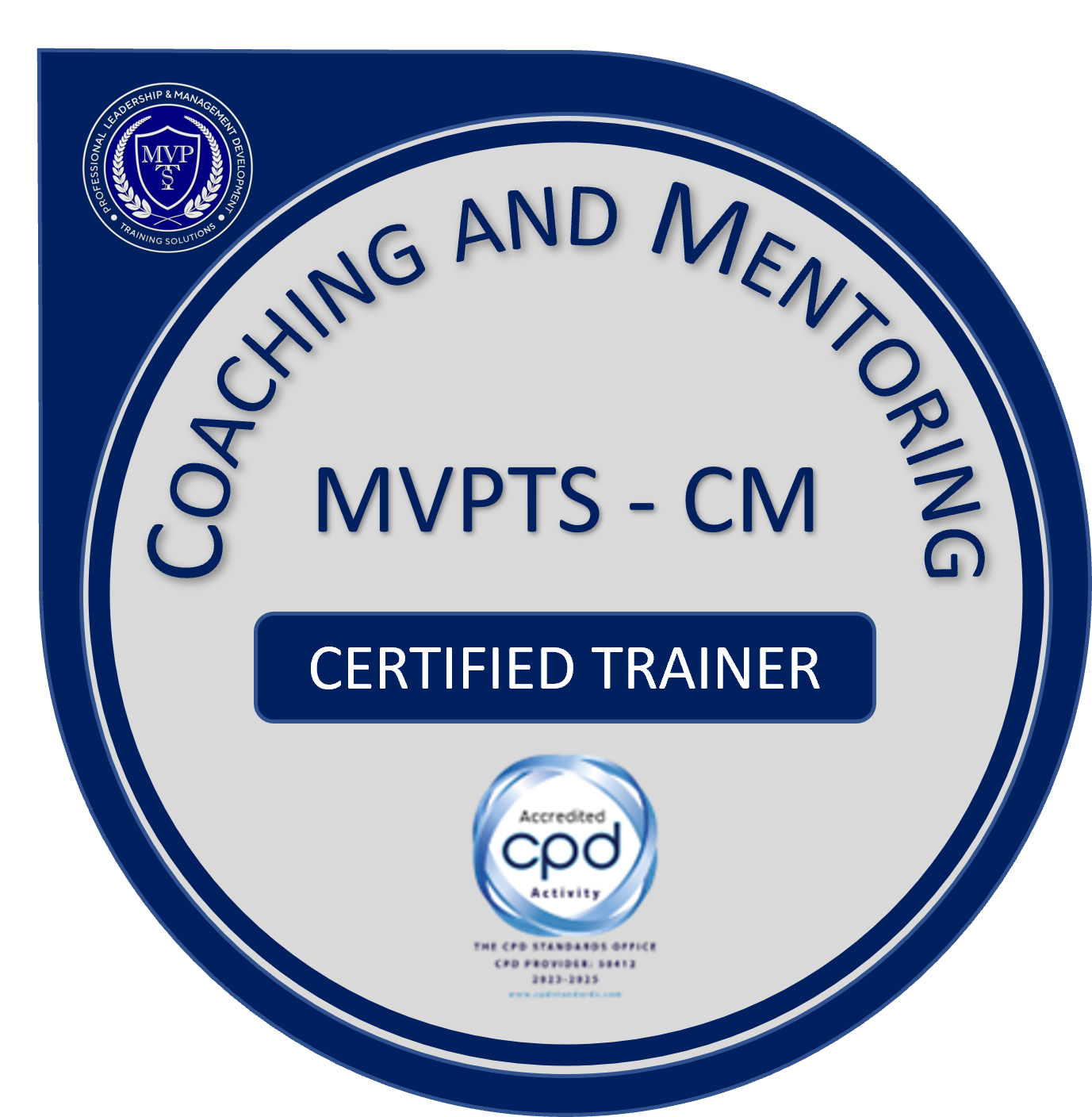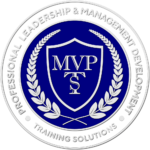Coaching and Mentoring Mastery

Course Description
Title: Certified Master of Coaching and Mentoring in Growth-Oriented Environments
Embark on a transformative odyssey with our Coaching and Mentoring certification course designed for aspiring leaders like you. Over twelve enriching chapters, unravel the intricacies of leadership development, navigating from foundational coaching principles to advanced strategies like Emotional Intelligence. Set personal learning goals, master coaching techniques, and foster trust in mentor-mentee relationships. Explore career guidance, diversity promotion, and sustained connections. Witness the synergy of Coaching and Mentoring, seamlessly integrating both into organizational culture. Provide ongoing support, tackle challenges, and evaluate initiative effectiveness. Embrace the role of a culture cultivator through case studies and best practices. Envision a future where certified coaches and mentors shape leaders ready for tomorrow. Immerse yourself in this transformative journey, emerging as a champion for meaningful coaching and mentoring in leadership development.
Topics Covered
1. Module I: Nurturing Leadership Through Coaching and Mentorship
- Importance of Coaching and Mentorship in Leadership Development
- Understanding the Coaching and Mentorship Process
- Exploring Different Coaching and Mentorship Models
- Ethical Considerations in Coaching and Mentorship
2. Module II: Fundamentals of Coaching
- Definition and Key Principles of Coaching
- Different Coaching Styles and Approaches
- Active Listening and Effective Communication in Coaching
- Building Trust and Rapport with Coachees
3. Module III: Coaching Techniques and Tools
- Goal Setting and Action Planning with Coachees
- Feedback and Performance Evaluation
- Handling Challenges and Resistance in Coaching
- Assessing and Measuring Coaching Outcomes
4. Module IV: Advanced Coaching Strategies
- Emotional Intelligence in Coaching
- Coaching for Leadership Development
- Coaching for Career Growth and Transition
- Cultivating a Coaching Culture in Organizations
5. Module V: Understanding Mentorship
- Defining Mentorship and its Role in Developmental Relationships
- Types of Mentorship: Formal, Informal, Group, Reverse, and Cross-Cultural Mentorship
- Mentorship Ethics and Boundaries
- Identifying Suitable Mentoring Opportunities
6. Module VI: Effective Mentorship Practices
- Building Trust and Establishing Expectations
- Goal Setting and Development Planning with Mentees
- Nurturing Talent and Fostering Growth Mindset
- Overcoming Challenges in Mentorship
7. Module VII: Mentorship for Career Advancement
- Mentorship for Professional Skill Development
- Mentorship for Leadership and Management Roles
- Diversity and Inclusion in Mentorship
- Sustaining Long-term Mentorship Relationships
8. Module VIII: Integrating Coaching and Mentorship
- Recognizing the Synergy Between Coaching and Mentorship
- Leveraging Coaching Techniques in Mentorship and Vice Versa
- Case Studies: Successful Integrated Coaching and Mentorship Programs
- Evaluating the Impact of Integrated Approaches
9. Module IX: Supporting and Evaluating Coaches and Mentors
- Providing Ongoing Support and Resources
- Addressing Mentorship and Coaching Challenges
- Assessing the Effectiveness of Coaches and Mentors
- Continuous Improvement of Coaching and Mentorship Initiatives
10. Module X: Building a Coaching and Mentorship Culture
- Creating Organizational Support for Coaching and Mentorship
- Training and Developing Internal Coaches and Mentors
- Sustainability and Scalability of Coaching and Mentorship Programs
- Measuring the ROI of Coaching and Mentorship Initiatives
11. Module XI: Case Studies and Best Practices
- Successful Coaching Implementation
- Effective Mentorship Programs
- Combined Coaching and Mentorship Success Stories
- Lessons Learned and Adaptation for Different Contexts
12. Module XII: Envisioning a Brighter Leadership Future
- Anticipating and Preparing for Emerging Coaching and Mentorship Trends
- Contribution of Certified Coaches and Mentors to Leadership Excellence
- Envisioning the Role of Coaching and Mentorship in Shaping Tomorrow’s Leaders
- Inspiring Others to Engage in Meaningful Coaching and Mentorship Initiatives
How to use this Certification
- Career Advancement: Demonstrate your commitment to professional development, making you a more attractive candidate for promotions or new job opportunities.
- Entrepreneurship: Start your own coaching or mentoring business, offering services to individuals or organizations seeking guidance and development.
- Enhanced Leadership Skills: Apply coaching and mentoring techniques to enhance your leadership skills, creating a positive and supportive work environment.
- Team Building: Use coaching and mentoring skills to foster collaboration and teamwork within your organization, improving overall team performance.
- Organizational Development: Contribute to organizational development by implementing coaching and mentoring programs that enhance employee skills, satisfaction, and retention.
- Human Resources (HR) Roles: Excel in HR roles by incorporating coaching and mentoring strategies to facilitate employee development, improve performance, and resolve conflicts.
- Personal Development: Apply coaching techniques to your personal life, helping you set and achieve goals, improve relationships, and manage challenges more effectively.
- Specialized Niche Coaching: Specialize in a particular niche, such as executive coaching, career coaching, or life coaching, and establish yourself as an expert in that area.
- Consulting Opportunities: Offer consulting services to organizations seeking guidance on implementing coaching and mentoring programs for their employees.
- Community Involvement: Give back to the community by volunteering your coaching and mentoring skills supporting individuals who may not have access to formal training or resources.
Target Audience
- Aspiring Coaches and Mentors: Individuals looking to build a strong foundation in coaching and mentorship practices to guide future leaders effectively.
- Leadership Development Professionals: Professionals responsible for nurturing leadership skills and seeking to enhance their toolkits with coaching and mentorship expertise.
- HR Managers and Professionals: Human Resources practitioners interested in integrating coaching and mentorship programs to foster a culture of growth and development within their organizations.
- Mid-level Managers: Managers seeking to elevate their leadership capabilities by learning coaching and mentorship techniques to better lead and inspire their teams.
- Career Transition Specialists: Professionals helping individuals navigate career shifts and transitions, enhancing their offerings with coaching and mentorship insights.
- Organizational Consultants: Consultants aiming to integrate coaching and mentorship principles to enhance organizational performance and employee engagement.
- Educators and Trainers: Teachers and trainers in academia or corporate settings aiming to incorporate coaching and mentorship practices for holistic student or employee development.
- Nonprofit and Community Leaders: Leaders within nonprofits and community organizations interested in utilizing coaching and mentorship to empower individuals and drive social change.
- Professional Development Coordinators: Coordinators responsible for designing and implementing programs that enhance professional growth within their companies.
- Entrepreneurs and Small Business Owners: Individuals seeking to foster leadership excellence in themselves and their teams, leveraging coaching and mentorship strategies to drive business success.
Learning Objectives
- Define the principles and key components of coaching and mentorship.
- Apply active listening and effective communication skills to establish rapport with coachees and mentees.
- Utilize coaching techniques to set and evaluate goals, provide feedback, and handle resistance.
- Understand the role of emotional intelligence in coaching and mentorship relationships.
- Demonstrate how coaching and mentorship can be tailored for leadership development and career growth.
- Identify the different types of mentorship and their applications in various contexts.
- Develop mentorship strategies that foster a growth mindset and nurture talent.
- Integrate coaching and mentorship approaches to enhance their complementary benefits.
- Evaluate the effectiveness of coaching and mentorship initiatives in organizations.
- Develop a plan for creating a coaching and mentorship culture within an organization.
Learning Outcomes
- You will be able to describe the core principles of coaching and mentorship and their significance in leadership development.
- You will be able to showcase your communication and active listening abilities to establish rapport and trust with mentees and coachees.
- You will be able to apply various coaching techniques to set actionable goals and provide constructive feedback to coachees.
- You will be able to implement emotional intelligence strategies in coaching and mentorship relationships.
- You will be able to design mentorship programs that cater to individual needs and foster growth.
- You will be able to analyze case studies of successful coaching and mentorship programs and their outcomes.
- You will be able to create a coaching and mentorship culture within an organization by integrating best practices and resources.
- You will be able to assess the impact of coaching and mentorship initiatives and make data-driven improvements.
- You will be able to evaluate the compatibility of coaching and mentorship in creating a comprehensive leadership development strategy.
- You will be able to develop personal development plans to enhance coaching and mentorship skills in the context of leadership and developmental relationships.
